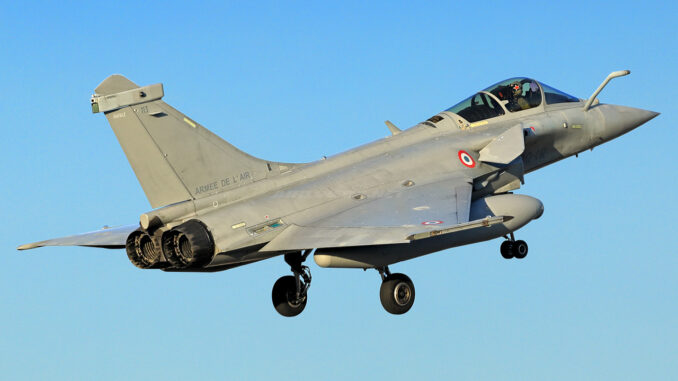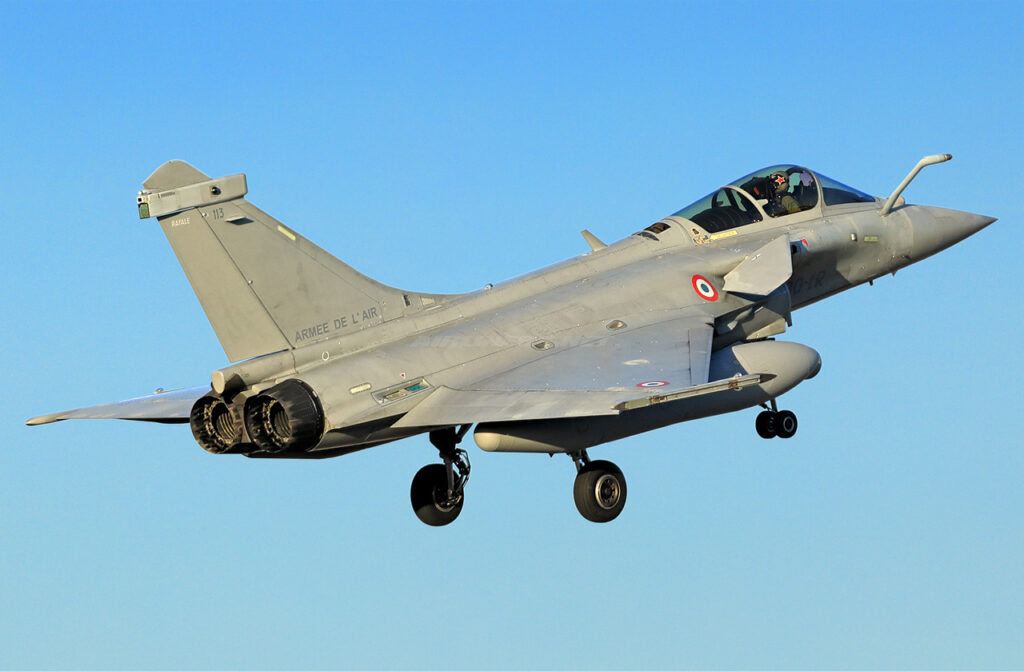
Dassault Aviation’s Rafale F4 could equip the Royal Saudi Air Force following Germany’s refusal to sell Typhoon Tranche 4s.
The Royal Saudi Air Force is looking to modernize its fleet of combat aircraft. Initially interested in the Eurofighter Typhoon Tranche 4, Saudi Arabia saw this option blocked by Germany for diplomatic reasons. Dassault Aviation’s Rafale F4 now appears to be a serious alternative. This strategic shift raises questions about the political and industrial implications for France and its partners.
An opportunity for the Rafale F4
Saudi Arabia is looking to replace its aging McDonnell-Douglas F-15C/D Eagle and Panavia Tornado IDS aircraft. With 54 aircraft to replace, the market is sizeable. The Rafale F4, the latest version of the French fighter, offers advanced stealth, connectivity and weapons capabilities. It is capable of versatile missions, from air superiority to ground attack.
The Rafale F4 incorporates cutting-edge technologies such as the RBE2 active antenna radar, optoelectronic sensors and enhanced connectivity for networked combat. These features make it a strong candidate to meet Saudi Arabia’s modern air defense requirements.
The German refusal and its consequences
Saudi Arabia’s initial option was the Eurofighter Typhoon Tranche 4, for reasons of continuity with the 72 Typhoons already in service in its fleet. However, Germany vetoed the sale due to human rights concerns and Saudi military intervention in the region.
This refusal prompted Saudi Arabia to explore other options. The German position highlights the political differences within the European Union regarding arms exports. For France, it opens a window of opportunity to offer the Rafale F4.
The diplomatic stakes for France
France must navigate this issue with caution. On the one hand, the sale of the Rafale F4 would represent a major commercial success for Dassault Aviation and strengthen the French defense industry. On the other, it must consider the human rights implications and potential criticism on the international stage.
The French government has historically adopted a pragmatic approach in its relations with Saudi Arabia. Such a sale could strengthen economic and strategic ties between the two countries, while sparking debate on the ethics of arms exports.

American alternatives and Saudi calculations
Meanwhile, Saudi Arabia is considering the Boeing F-15EX Eagle II as another option. This latest-generation American fighter offers improved performance and compatibility with systems already in service with the Saudi fleet.
However, relations between the United States and Saudi Arabia are complex. Diplomatic tensions and US Congressional concerns over arms sales could slow or hinder such an agreement. The Saudis could therefore use interest in the Rafale F4 as leverage in their negotiations with Washington.
The role of the Paris 2024 Olympic Games
The Paris 2024 Olympic Games offer Saudi Arabia a platform to improve its international image. With a delegation including female athletes, the country is looking to show signs of openness. This context could facilitate discussions with France on sensitive subjects, including arms sales.
Sport is used as a diplomatic tool by Saudi Arabia to strengthen its international relations. Increased cooperation with France in this area could have a positive impact on negotiations concerning the Rafale F4.
Prospects for Dassault Aviation
For Dassault Aviation, a contract with Saudi Arabia would be a major step forward. The Rafale F4 would strengthen its position on the international market against competitors such as the Eurofighter Typhoon and the F-15EX Eagle II. It would also open the door to future partnerships and long-term maintenance of the Saudi fleet.
However, the company must also consider the associated risks, notably in terms of reputation and compliance with international arms export regulations.
War Wings Daily is an independant magazine.